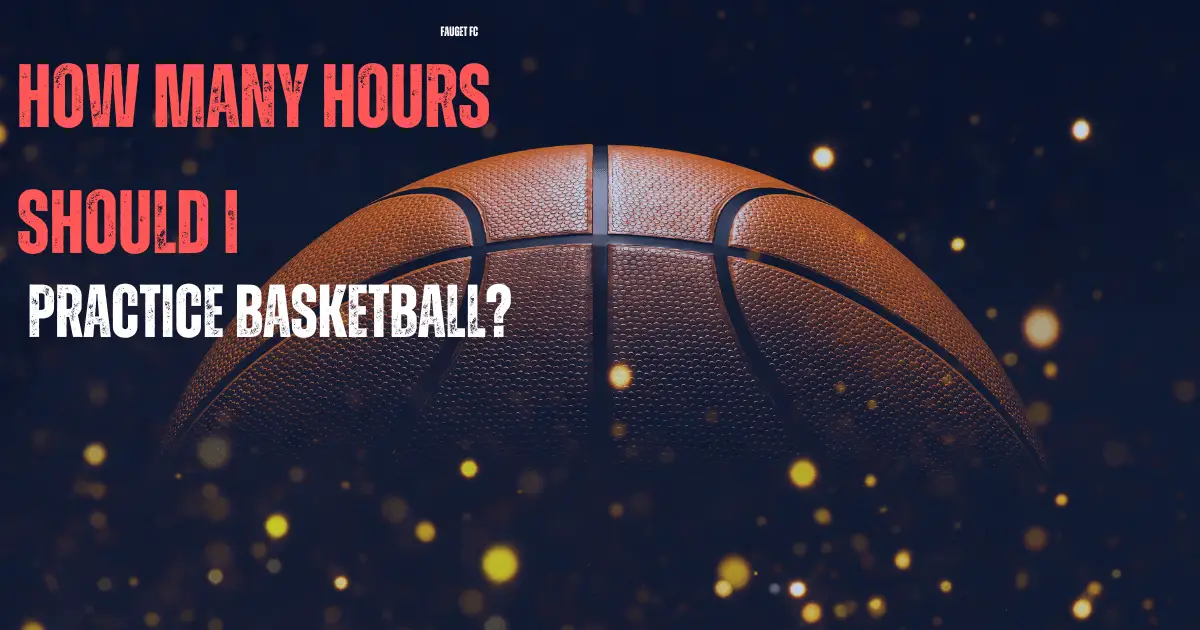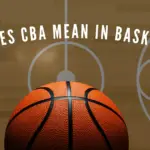According to experts, the ideal time for a player to practice basketball is between two and three hours per day. If done properly, these two or three hours can make a huge difference in helping you become a better player.
The most important thing in practicing is improving specific skills that will help your overall game. Working on shooting form, dribbling drills, and defensive plays can all be beneficial if practiced in moderation. Setting realistic goals for yourself is important, so you don’t get overwhelmed or discouraged by any mistakes or setbacks you experience while trying to improve your skills.
Reasons To Practice Basketball:
Practicing basketball helps develop fundamental skills like coordination, agility, and stamina and allows players to learn important lessons about teamwork and sportsmanship. Here are some great reasons why you should practice basketball regularly:
Gain Experience:

Playing basketball requires knowledge of strategy and game plans which can only be acquired through practice. Players become more experienced working with teammates to create effective plays on offense and defense with each game or session.
Build Self-Confidence:

Basketball also helps build self-confidence by teaching athletes how to play their best under pressure and make decisions quickly in tight situations.
Physical And Mental Benefits:

The consistent and dedicated time spent on the court can positively impact one’s physical and mental health. Basketball provides exercise for the entire body and can help players improve their reaction time, hand-eye coordination, stamina, strength, and balance.
Beyond these physical perks associated with playing basketball, there are also mental benefits that come with picking up a ball. Practicing this sport requires concentration and focus on moving fluidly throughout each game or drill. This helps players develop discipline, which carries over into other aspects of life outside of basketball.
Basketball Practice Tips:
Here are some helpful basketball practice tips to get you started on refining your technique:
Set Your Goals:
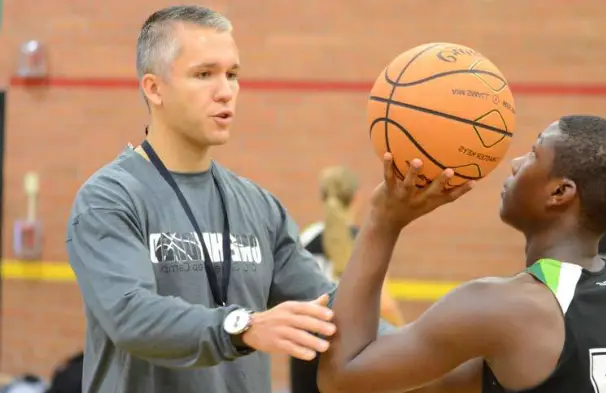
Before beginning any basketball practice session, set realistic goals, so you know what needs to be achieved by the end of each session. This helps ensure you stay focused and motivated throughout each drill or activity.
Learn The Basics:
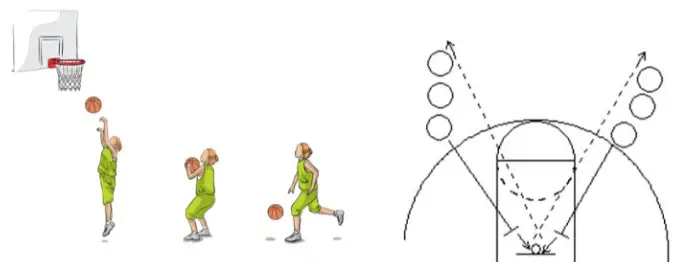
Learn the fundamentals of the game – dribbling, shooting, passing, footwork, and defense. Knowing these will give you a foundation to build on as you practice more advanced techniques.
Track Your Progress:
Track how well you are meeting those goals over time; this will give insight into which strategies work best for you so that you can continue making progress toward becoming an even better basketball player.
Focus On Shooting Form:
Improving your shot can be challenging but will pay dividends if done correctly. Make sure you’re using proper technique, not just relying on arm strength and power alone.
Practice Free Throws:
Players often overlook free throws during practice, but they can be one of the most important shots you take during a game.
Be Consistent:
Do whatever it takes to stay consistent with these tips and others with basketball practice! Incorporate drills into your sessions to help reinforce what you have learned and ensure steady improvement each time on the court!
Mistakes Basketball Players Make In Practice:
Several common mistakes basketball players make while practicing can hinder their progress.
Not Having A Goal
One of the most common mistakes basketball players make in practice is not setting their goals correctly. Goals should be realistic, attainable, and challenging enough to push players out of their comfort zone. Additionally, if players’ goals are too lofty or unrealistic, they will quickly become frustrated with themselves when they fail to meet them. Poor goal-setting habits can lead to discouragement or even quitting altogether.
Afraid to Make Mistakes
The most frequent mistake basketball players make is being afraid to make mistakes. Although this may seem like a minor issue, it can significantly hinder their performance in the long run. Players who are too worried about making errors are more cautious and less confident on the court, stopping them from reaching their fullest potential.
Neglect Stretching
Neglecting stretching before and after practice is one of the biggest mistakes that many athletes make. Stretching helps prep your muscles for practice and prevents them from tightening up afterward.
Practicing Unnecessary Things
Many players end up practicing or repeating things unnecessarily during practice which takes away time from perfecting other important skills and techniques. Knowing what drills to do for specific goals beforehand will help ensure you don’t waste valuable time on unnecessary activities during practice.
How Long Are Nba Practices?
NBA teams typically have two to three practices a week during the regular season, which lasts from October through April. Each practice usually starts with a warm-up and stretching exercises followed by skill drills and scrimmages. Each drill’s length depends on what coaches feel their team needs to improve, ranging from 15 minutes to an hour. Afterward, players may use the remaining time for individual shooting sessions or film reviews with the coaching staff.
How Many Hours Does Steph Curry Practice A Day?
As one of the greatest players, Steph Curry is renowned for his dedication to the sport and his skill level. He regularly practices an average of three hours a day, five days a week, from early morning until late evening. This includes working on his shooting form and running drills with his teammates to refine his technique further. In addition, he also spends additional time studying film footage and analyzing weaknesses to improve himself continually.
Do Nba Players Practice On Game Day?
Most professional basketball teams follow a strict game-day schedule, with no time allocated to practice. However, light workouts are still done, typically in warm-ups and drills that focus on honing specific skills. Professional athletes also need time to prepare for the upcoming game mentally, so they usually develop pregame routines to help them get into the right mindset.
For those playing at lower levels of competition, such as amateur or recreational leagues, there is often more leeway regarding what can be done before a game. Some people might opt for lighter practices or drills that focus on shooting accuracy or dribbling skills, while others will spend most of their time stretching and warming up before taking the court.
How Often Did Michael Jordan Practice?
Jordan’s practice routine was intense and consistent. During the off-season, he would practice five days a week for about two hours per day; however, during the season, he practiced every day for three or four hours. He also lifted weights – usually 3 to 4 times per week – to maintain peak physical condition. In addition, he worked hard on perfecting his shooting and dribbling skills every day without fail. His dedication to improving himself demonstrates how important it is for anyone wanting to excel in their chosen sport or activity.
Conclusion:
Practicing basketball is key to improving your game and refining your skills. You should practice as much as possible, but it is important to balance playing and resting. While the optimal amount of hours to practice each week can vary depending on individual goals and abilities, it is generally recommended that players devote at least three hours per week towards drills and workouts.
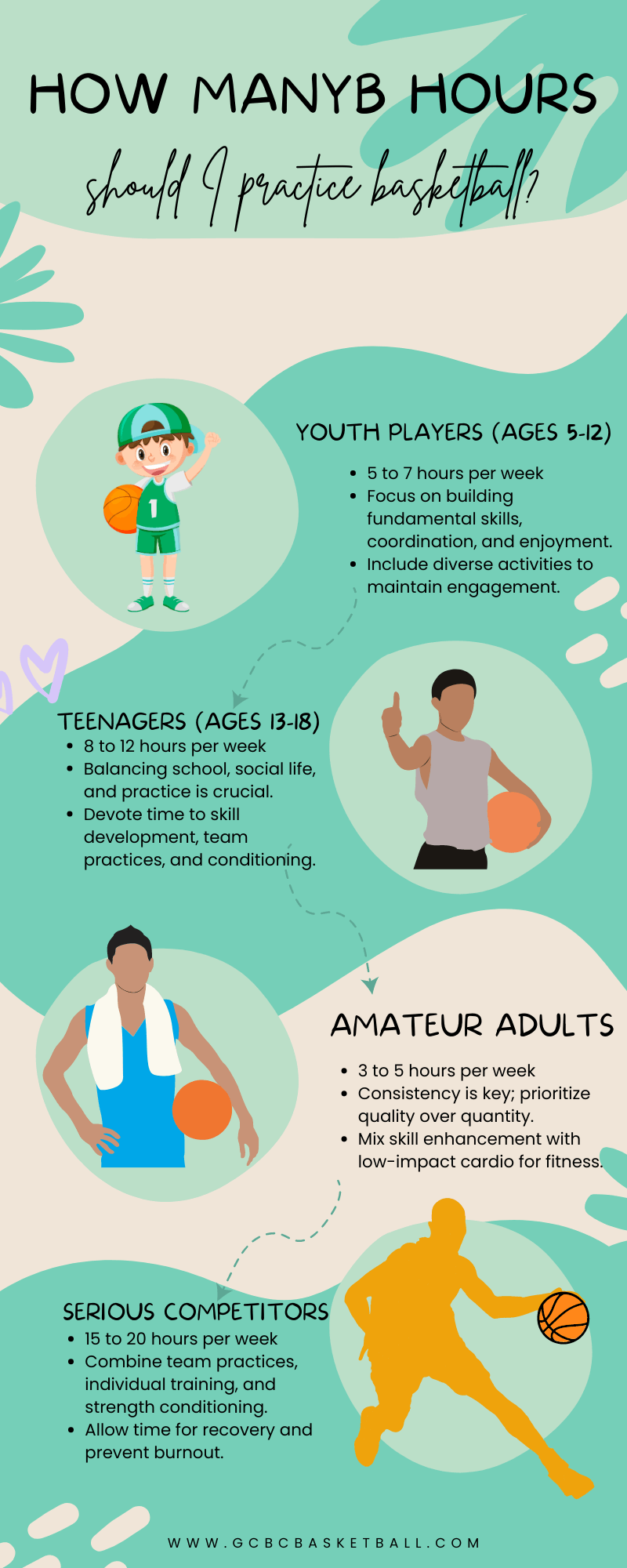

Clyde Jackson III is a basketball coach and the founder of GCBC Basketball, a basketball-related learning and informational website that focuses on helping young players develop their skills on and off the court. With over 15 years of coaching experience, Clyde has worked with players of all ages and skill levels, from beginners to professionals.

